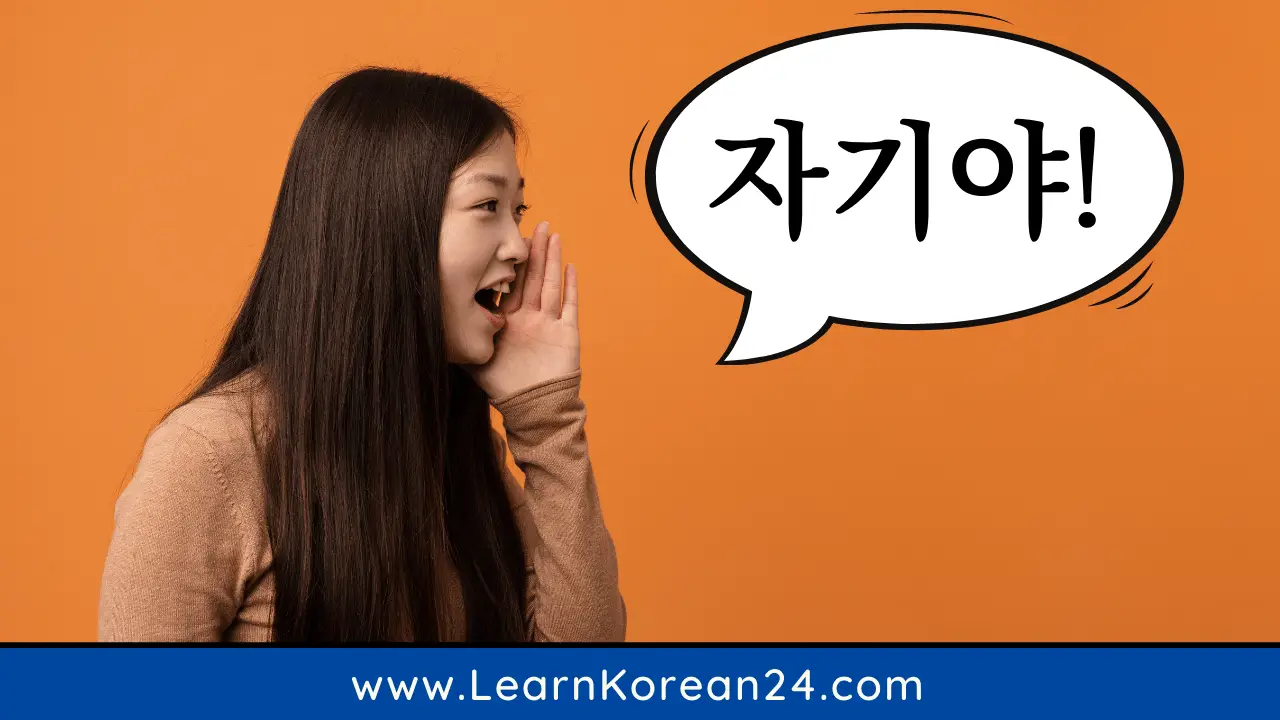What Does Jagiya Mean (자기야)?
If you live in Korea or watch a lot of Korean dramas you may hear the word ‘Jagiya’ (자기야) a lot and wondered what it means.
Jagiya (자기야) is an affectionate way to call your boyfriend or girlfriend. Jagiya is similar to ‘honey’, ‘darling’, baby’ in English. Both married and unmarried couples can call each other Jagiya.
Below you can find some example sentences with Jagiya and some other ways to call your significant other in Korean.
Related: “I Miss You” In Korean
Meaning Of Jagiya – Example Sentences
Korean couples often call each other Jagiya instead of calling their names, as this is an affectionate way to call your boyfriend or girlfriend. Here are some example sentences using ‘jagiya’ (자기야) with the English meaning.
- 자기야! 보고 싶어! [Ja-gi-ya! Bo-go si-peo!] = Honey! I miss you!
- 자기야! 저녁 뭐 먹을까? [Ja-gi-ya! Jeo-nyeok mweo meo-gul-gga?] = Honey! What shall we eat for dinner?
- 자기야! 도와줘. [Ja-gi-ya! Do-wa-jweo.] = Honey! Please help me.
- 자기야! 뭐 해? [Ja-gi-ya! Mweo hae?] = Honey! What are you doing?
- 자기야! 몇 시야? [Ja-gi-ya! Myeot si-ya?] = Honey! What time is it?
What’s The Difference Between Jagiya and Yeobo?
You may have seen couples in Korean dramas or in Korea calling each other ‘Jagiya’ (자기야) and ‘Yeobo’ (여보) and wondered what is the difference is between Jagiya and Yeobo.
The main difference between Jagiya and Yeobo is that while Jagiya can be used by both married and unmarried couples, only married couples call each other Yeobo. Both Jagiya and Yeobo are affectionate ways to call your partner.
Alternatives To Jagiya and Yeobo
Here are some other Korean expressions you can use to refer to your partner in an affectionate way.
- 오빠 ]Oppa] = This is used by women to refer to an older man. This is used with men and women who are not dating but can also be used by women in an affectionate way to refer to their older boyfriend.
- 내 사랑 [nae Sa-rang] = My love.
- 여봉 [yeo-bong] = This is a cute way to say ‘Yeobo’ in Korean (여보) but this cute version of Yeobo can be used with married and unmarried couples.
- 당신 [dang-sin] = When married couples use this word it is an affectionate way to say ‘You‘. But, be careful! When non-married people or strangers say 당신 it means ‘you’ in quite a rude/aggressive way.
Are you ready to get serious about learning Korean? Start our 100% FREE online Korean language course today!


